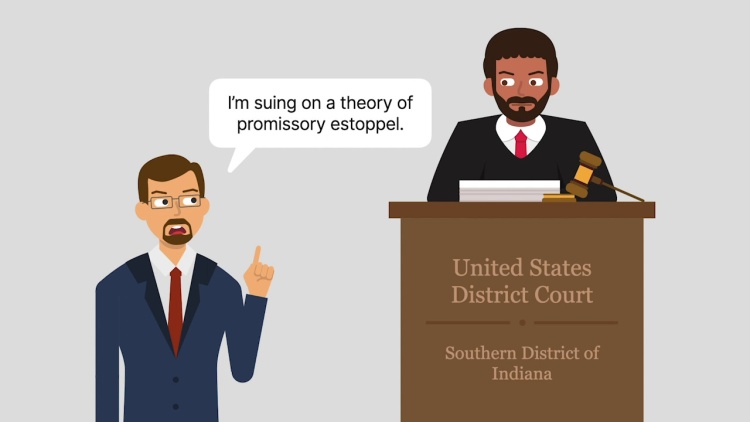Walters v. Marathon Oil Co.
United States Court of Appeals for the Seventh Circuit
642 F.2d 1098 (1981)
- Written by Megan Petersen, JD
Facts
Walters (plaintiff) entered negotiations with Marathon Oil Co. (Marathon) (defendant) for the purpose of setting up a Marathon franchise. Based on these negotiations, Walters purchased property for the franchise and made improvements on the property. Walters submitted a final proposal for the franchise agreement to Marathon. Before Marathon accepted but after it received Walters’ proposal, Marathon’s leadership placed a moratorium on the consideration of new franchise applications. Marathon refused to sign the final agreement with Walters. Walters brought suit in federal district court against Marathon. The trial court held Walters was entitled to relief based on a theory of promissory estoppel. After hearing expert testimony, the trial court found that Walters could reasonably anticipate selling 370,000 gallons of fuel during their first year of operating the franchise. Based on this number, the trial court found that Walters would earn profits of six cents per gallon sold, or $22,000.00 the first year. The trial court awarded this amount in damages to Walters, and Marathon appealed. On appeal, Marathon argued that because Walters succeeded at the district court on a promissory estoppel theory, Walters was not entitled to damages amounting to anticipated lost profits.
Rule of Law
Issue
Holding and Reasoning (Spears, J.)
What to do next…
Here's why 911,000 law students have relied on our case briefs:
- Written by law professors and practitioners, not other law students. 47,100 briefs, keyed to 997 casebooks. Top-notch customer support.
- The right amount of information, includes the facts, issues, rule of law, holding and reasoning, and any concurrences and dissents.
- Access in your classes, works on your mobile and tablet. Massive library of related video lessons and high quality multiple-choice questions.
- Easy to use, uniform format for every case brief. Written in plain English, not in legalese. Our briefs summarize and simplify; they don’t just repeat the court’s language.





